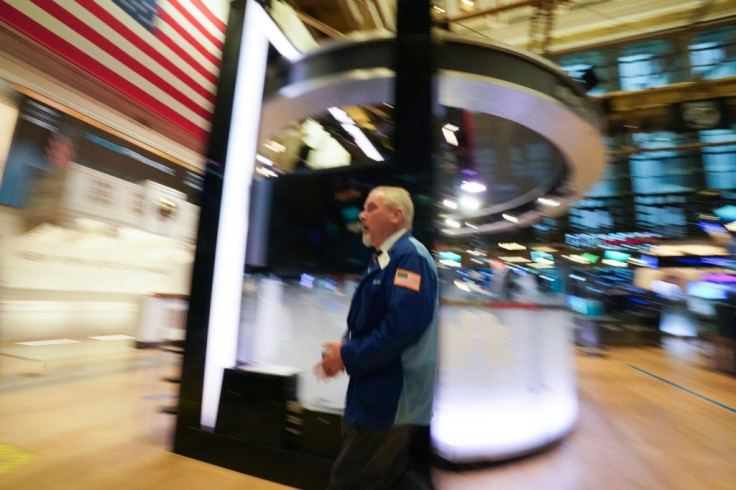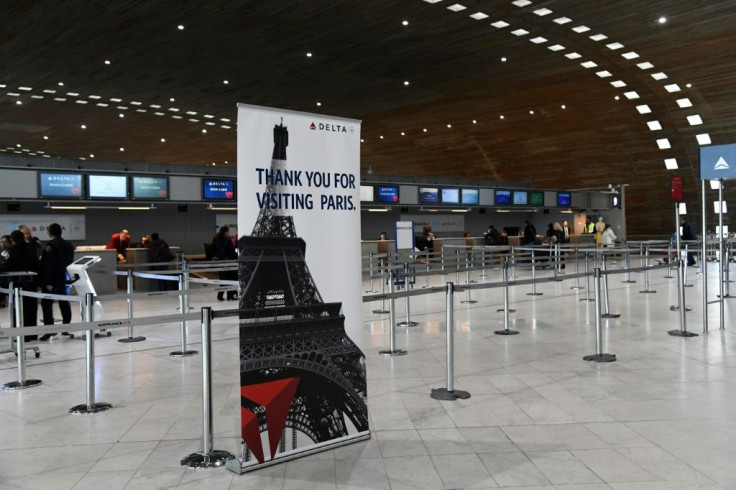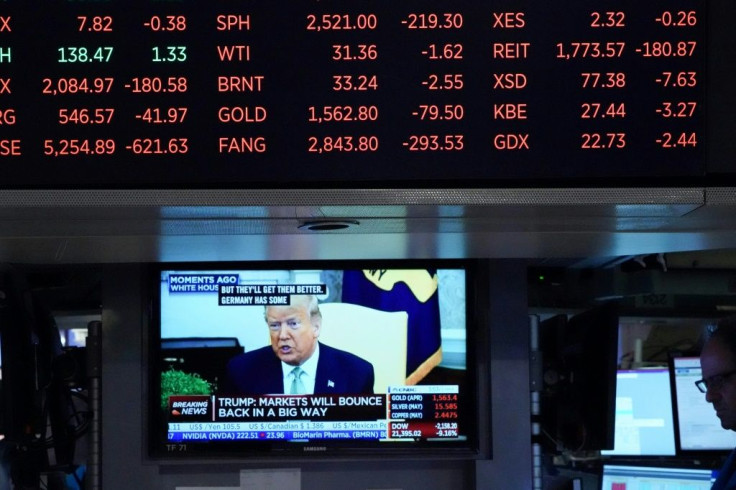Airline Stocks Nosedive As US Travel Ban Hits EU Travel Sector

Europe's travel sector reacted with dismay Thursday to a US-imposed trans-Atlantic travel ban that sent the share price of major airlines into free fall.
The International Air Transport Association (IATA) warned that airlines needed "emergency measures" after President Donald Trump imposed the ban to stem the spread of coronavirus.
Air France stock lost almost 18 percent at the Paris opening bell, before recovering to trade five percent lower in mid-afternoon exchanges.
Lufthansa shares, quoted in Frankfurt, were off by almost nine percent.
The US is not banning passengers from Britain, but shares in British Airways' parent company IAG still slumped more than 10 percent, while EasyJet lost over nine percent.
"Trump is simply kicking a man when he's down," according to an EU diplomat in Brussels who called the ban "erratic."
Trump said the US would not allow travellers from the EU's Schengen border-free zone into the country for 30 days, calling the move an "aggressive" effort to contain the spread of COVID-19, the disease caused by the new coronavirus.
The decision does not affect visitors from Britain and Ireland, or US citizens returning from Europe.

Key US companies were hit even harder than their European counterparts, with the sector suffering its worst downturn since the September 11, 2001 attacks.
Boeing, already reeling from problems with the 737 MAX jet, lost 14 percent by the time trading was suspended Thursday, which added to its 18 percent drop a day earlier.
Shares in United Airlines shed nearly 15 percent on Wall Street before trading was suspended after the S&P 500 index lost seven percent.
Global markets have lost a combined $11.3 trillion in value since a peak on February 19, and $4.5 trillion this week alone.
American Airlines and Delta plunged by double-digit percentages.

"The travel ban is another hammer blow for the airlines" that "were getting crucified by the reduction in tourism and business travel in the last month," said economist Charlie Robertson at Renaissance Capital in London.
Peter Elbers, chief executive of the Dutch carrier KLM, told public television NOS: "It is undeniable that the consequences are extremely heavy."
Fears that other countries might follow the US example "are paralysing the market," said Timo Emden of Emden Research.
French Finance Minister Bruno Le Maire told a news conference: "Trump's announcement is bad news for all airlines."
Le Maire "regretted" a decision "which will have a very strong impact on tourism and a very strong impact on companies in general."
European leaders argue that travel restrictions are ineffective because the virus has now spread almost worldwide, and lament that Trump had not consulted them first.
After speaking with Air France chief executive Benjamin Smith, Le Maire said they would look for ways to "ensure Air France comes through this difficult moment... in the best possible conditions."
Airlines are especially vulnerable to a sharp drop in tourism and business travel.
Italy, the worst hit country in Europe so far, has quarantined its entire population of 60 million, the US has advised citizens against all foreign travel, and tourist magnets like Paris are bracing for hard times.
Service sector businesses have been pummelled and industrial supply lines are also under pressure, further dampening economic activity.
The ban "will create enormous cash-flow pressures for airlines," IATA head Alexandre de Juniac said. "Airlines will need emergency measures to get through this crisis."
On March 5, IATA estimated that the crisis could wipe out some $113 billion in airline industry, but the organisation stressed that that estimate did not include the severe measures the US and other governments, including Israel, Kuwait and Spain, have since put in place.
Amsterdam-Schiphol Airport, one of Europe's biggest hubs, reported Thursday a 20-percent drop in passengers in the first week in March and prepared to work at reduced capacity.
"If all flights to and from the United States were cancelled, this percentage would rise to 30 percent," the airport statement said.
© Copyright AFP 2024. All rights reserved.





















